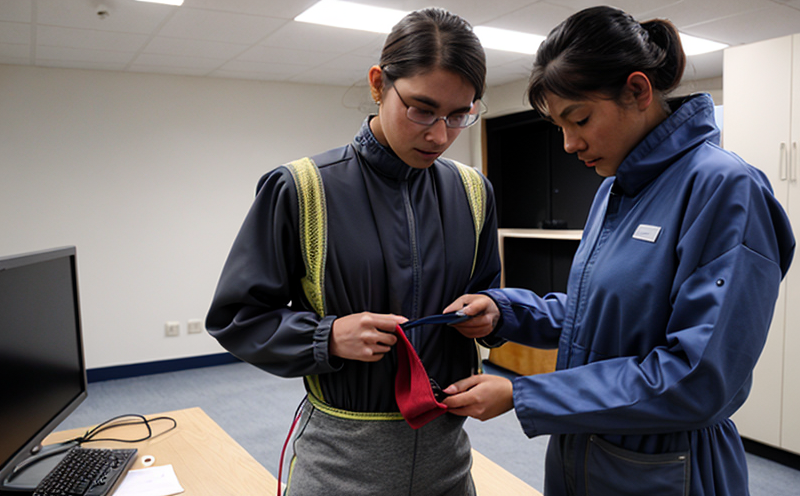EN 14683 Medical face masks Bacterial filtration efficiency
The European Standard EN 14683:2019 specifies the requirements and test methods for medical protective face masks, including their performance in preventing the spread of infectious agents. One crucial parameter is bacterial filtration efficiency (BFE), which measures how effectively a mask blocks bacteria from passing through its fabric. This service ensures compliance with BFE testing standards to guarantee patient safety during surgical procedures or other high-risk environments.
Bacterial filtration efficiency tests are conducted in accordance with the specified conditions detailed within EN 14683. Specimens of medical face masks are exposed to a bacterial aerosol, typically consisting of Staphylococcus aureus (ATCC 25923) or Pseudomonas aeruginosa (ATCC 27853), at defined concentrations and flow rates. The mask is placed in a specialized testing chamber where the aerosol passes through it, and the amount of bacteria that penetrates the mask is measured.
The test apparatus includes an aerosol generator, a sampling device, and a differential pressure sensor to monitor airflow. Specimens are clamped between two parts of the testing chamber, ensuring they represent real-world usage conditions. The flow rate through the specimen should be controlled within ±20% of the specified value.
Following the test, the bacterial concentration downstream from the mask is compared with that upstream. This allows for calculation of the percentage reduction in bacterial aerosol penetration across the mask, which defines its BFE. Masks must achieve a minimum BFE of 95%. Compliance ensures that healthcare professionals and patients are adequately protected against airborne bacteria.
Testing at Eurolab adheres strictly to EN 14683:2019, ensuring accurate results. Our experienced team prepares specimens meticulously, controls all test parameters precisely, and interprets the data with industry-standard rigor. Reporting includes detailed descriptions of the testing procedure, specimen characteristics, and results against specified acceptance criteria.
For R&D engineers, this service provides critical insights into optimizing mask design for improved BFE performance. Quality managers can ensure their products meet stringent regulatory requirements, while procurement officers can select suppliers based on reliable test data.
Applied Standards
The primary standard used in this service is EN 14683:2019, which outlines the essential requirements for medical face masks, including their performance against bacterial filtration efficiency. This European Standard ensures that products are safe and effective in protecting healthcare workers and patients.
- EN 14683:2019 - Requirements and test methods for surgical masks
- Bacterial Filtration Efficiency (BFE) as defined by the standard
The testing protocol described in EN 14683 is designed to simulate real-world conditions, ensuring that medical face masks provide reliable protection. Compliance with this standard is crucial for manufacturers aiming to produce safe and effective protective equipment.
Industry Applications
- Hospitals and Clinics: Ensuring the safety of healthcare workers and patients by providing masks that meet strict BFE standards.
- Surgical Departments: Protecting against airborne bacteria during complex procedures where infection control is paramount.
- Nursing Homes: Providing residents with protection from respiratory infections through the use of compliant face masks.
Bacterial filtration efficiency testing plays a critical role in ensuring that medical face masks perform as intended. By adhering to EN 14683, manufacturers and healthcare facilities can trust that their products provide adequate protection against bacterial contamination.
Eurolab Advantages
At Eurolab, we offer unparalleled expertise in medical face mask testing. Our dedicated team ensures accurate and reliable results, providing you with confidence in your product's compliance with EN 14683.
- Comprehensive Testing: We conduct all tests according to the latest standards, including bacterial filtration efficiency (BFE).
- Experienced Staff: Our professionals have extensive experience in medical device testing and can provide valuable insights into optimizing mask design for improved performance.
- Accurate Reporting: Detailed reports are provided, including data analysis and comparisons against acceptance criteria.
Trust Eurolab to ensure your products meet the highest standards of safety and efficacy. Our services are tailored to meet the specific needs of quality managers, compliance officers, and R&D engineers in the textile testing sector.





